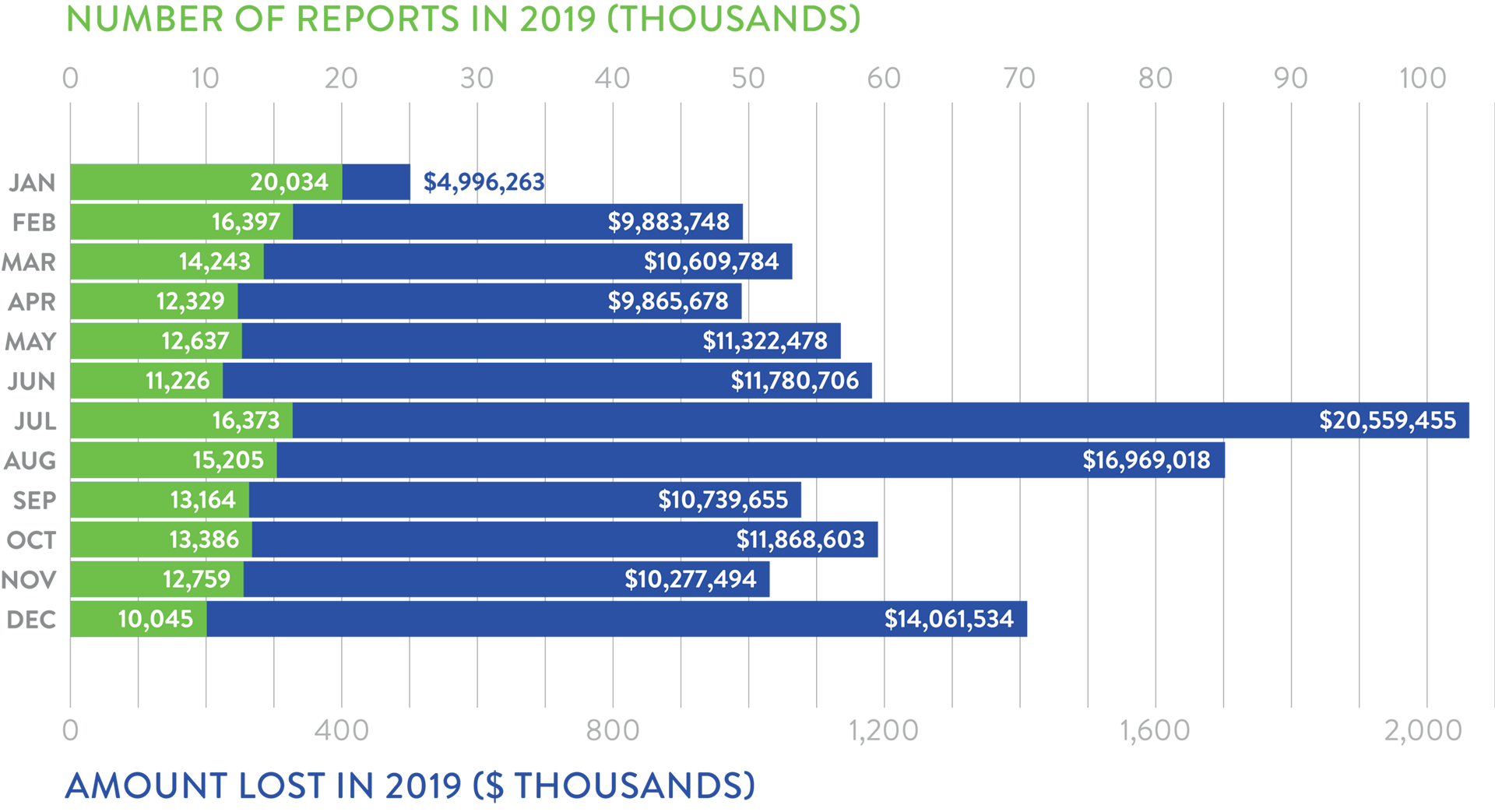Data breaches and hacking incidents are no longer something that occurs elsewhere.
2019 saw several major incidents occur in Australia, from the malware attack on Parliament House in January to the spearphishing attack on ANU announced by the Vice-Chancellor in June and the subject of a detailed report later in the year, the phishing attack on PayID users in August to the ransomware attack on Victorian hospitals in September.
In addition to major incidents, 2019 also saw thousands of successful hacking attempts against Australian individuals, businesses and government agencies. The Australian Cyber Security Centre (ACSC) now receives one cybercrime report every ten minutes.
2019 also showed significant growth in the average amount of money lost per reported breach.

Scamwatch identified that prior to December 2019 just over $129M was lost due to cybercrime across the 160,000 reports it received.

Preparation is key
All of this means that individuals, businesses and governments must be more prepared than ever. How can Australian organisations and government agencies prepare for a hack in 2020?
Implementing (and ensuring any IT suppliers are required to implement) robust preventative IT security systems and controls is critical. As evidenced by many of the examples of data breaches in 2019, so too is running regular proactive education and training programs to teach both staff and customers about how to recognise phishing attempts, password management and other physical security measures.
Having a robust data breach response plan in place is also vital. The Office of the Australian Information Commissioner (OAIC) has published guidance on preparing for and responding to data breaches. The OAIC guidance and best practice require clear lines of communication within an organisation and the establishment of a response team (which may include internal and external SMEs) to quickly deal with actual or suspected data breaches.
Know your notification obligations
The plan should document the organisations notification obligations requirements which may arise following an actual or suspected data breach. These may include the following:
- For organisations regulated by the Privacy Act 1988 (Cth), any notifications required to be made to the OAIC or affected individuals which may be required under the Notifiable Data Breaches scheme.
- Any requirements to notify of actual or suspected data breaches which arise under contracts with third parties, such as customers, service providers or insurers.
- Any additional requirements for providers of financial services. These may include:
- For institutions regulated by the Australian Prudential Regulation Authority (APRA) that become aware they have committed (or will commit) a ‘significant’ breach of a prudential requirement, the obligation to give APRA a written report about the breach. See our previous insights about APRA’s cyber security standards.
- The need to determine whether they also should report a breach to the Australian Securities and Investments Commission (ASIC) for institutions holding an AFS licence or where the breach relates to a legislative provision administered by ASIC. In 2015 ASIC provided a report “Cyber resilience: Health check” which explained how bodies regulated by ASIC should identify cyber risks and how they should be addressed as part of current legal and compliance obligations that are relevant to ASIC’s jurisdiction.
- For Commonwealth Government organisations that comply with the Australian Government Information Security Manual, the need to report cyber security incidents to the Australian Cyber Security Centre (ACSC).
- For State or Territory Government agencies, any requirements to report cyber incidents to State/Territory bodies (including in NSW to the NSW Chief Cyber Security Officer and Cyber Security NSW, and in Victoria to the Cyber Incident Response Service and the Office of the Victorian Information Commissioner).
In addition to requiring IT suppliers to implement appropriate IT security measures, business and government agencies should also ensure any IT contracts enable compliance with any legally required data breach notification requirements. See our previous insights on ensuring contracts are compliant with data breach notification laws.
Authors: Nicholas Ryan, Luke Standen and Lesley Sutton

Visit SmartCounsel
